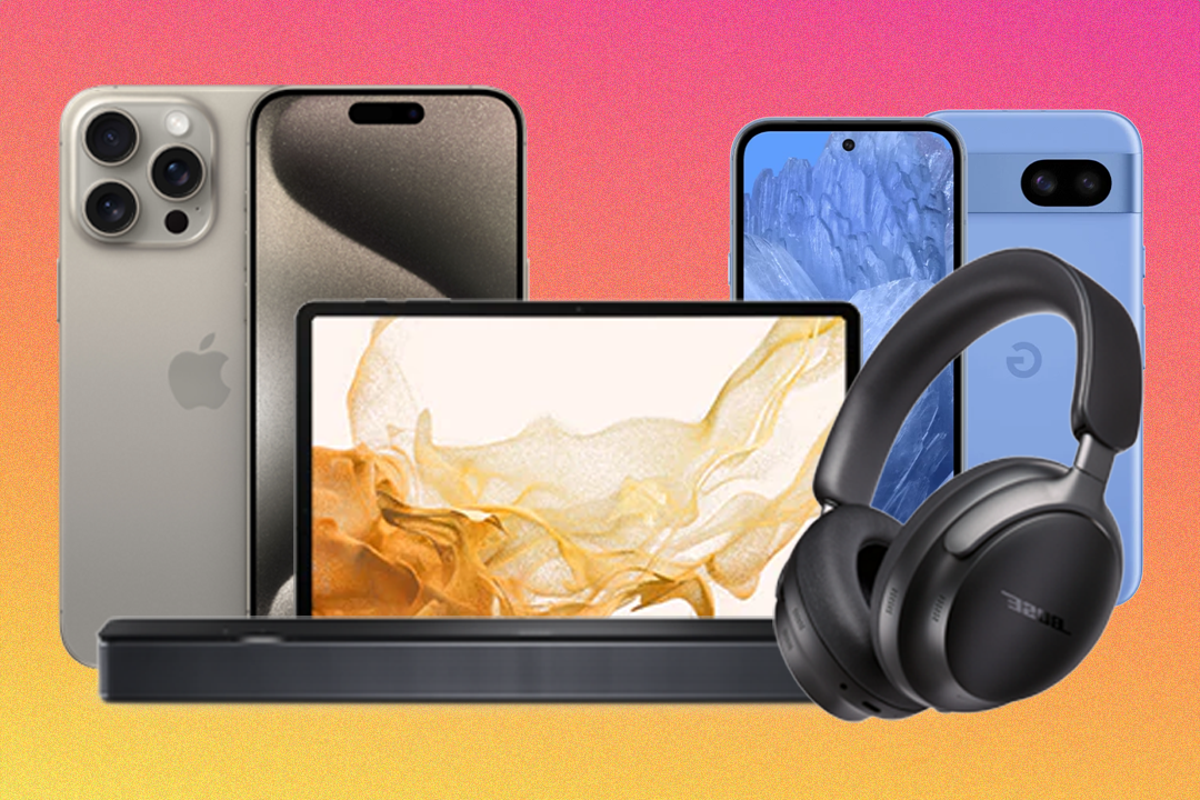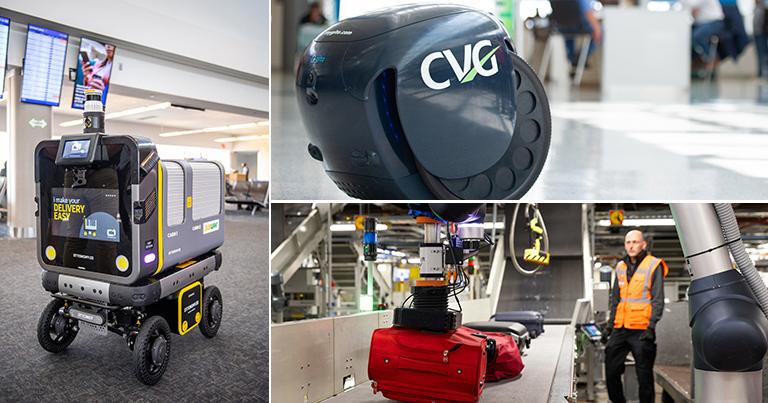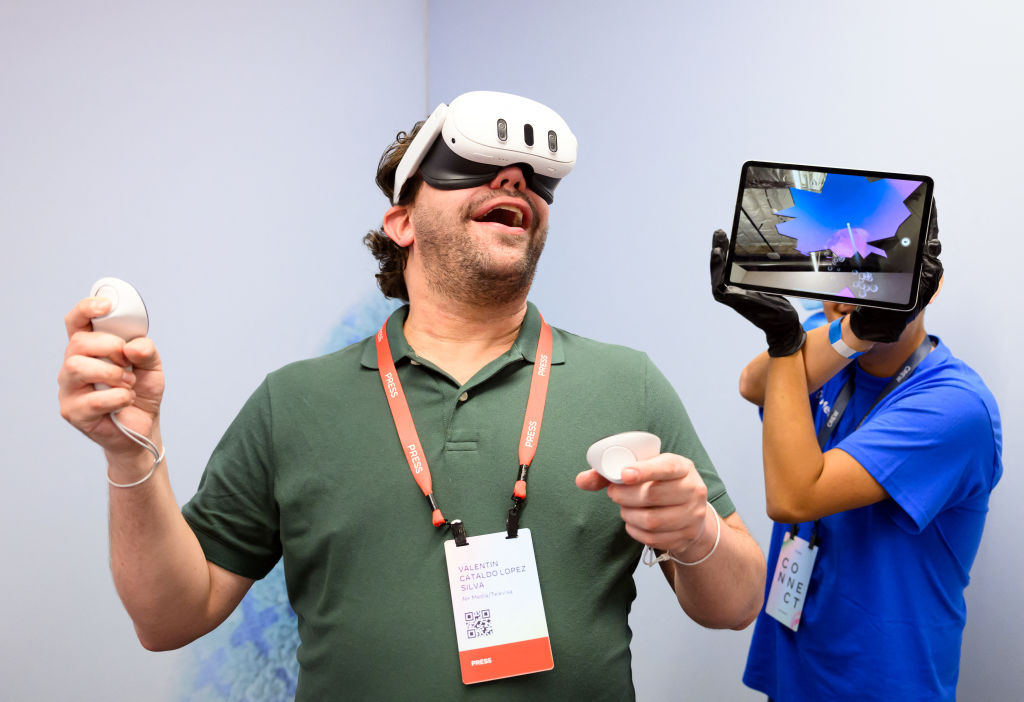- TECHSWU
- Posts
- TECHSWU #33
TECHSWU #33
Welcome to TECHSWU, your go-to destination for all things tech that matter in your daily life! From gadgets to software, we cover it all with a focus on what's relevant and usable now. Tune in to our YouTube channel, daily newsletter, and podcast for the latest updates and insights on the tech you use every day. Stay connected with TECHSWU and stay ahead in the world of technology



My Pocket Lawyer (MPL), a legal technology company, has surpassed major US law firms in terms of client volume, with over 20,000 users accessing its platform. To meet the rising demand, MPL has upgraded its AI-powered platform while maintaining its commitment to precision and reliability. MPL utilizes an agentic architecture and proprietary software to automate and scale legal processes typically performed by lawyers. This unique approach enhances operational efficiency and makes legal information and services more accessible and affordable for individuals and small businesses. MPL distinguishes itself from other legal tech platforms by avoiding the direct training of costly models, reducing development costs and sidestepping issues of data obsolescence and hallucinations. The platform utilizes purpose-built technology to generate precise answers, minimizing the risk of inaccuracies. MPL also connects users with a network of vetted attorneys suited to their needs, streamlining the process of seeking legal assistance. MPL is actively forming partnerships with law firms and business groups to enhance legal accessibility and support community and economic growth.

Hubble Network, a company that aims to use Bluetooth as a low-power connection to orbiting satellites, has successfully made its first Earth-to-space Bluetooth satellite connection. The company has disproven skeptics by showcasing that Bluetooth signals can be sent directly from chips on Earth and received by satellites orbiting 600km away. Hubble Network launched its first two satellites earlier this year to serve as a proof-of-concept test-bed for its proposal to use ground-to-space Bluetooth links for IoT connectivity. The company's approach allows existing Bluetooth-enabled devices to be retrofitted without any hardware modifications. According to internal testing, devices communicating with the satellites using Bluetooth could draw one-twentieth of the power of similar cellular-based devices, resulting in one-fiftieth of the operating costs. The company plans to increase the number of satellites in orbit to boost capacity and coverage.

The spatial biology market is projected to experience significant expansion by 2031. Spatial biology, also known as spatially resolved biology or spatial omics, is a field that focuses on understanding the spatial organization of biological molecules within tissues and organisms. Unlike traditional omics approaches, spatial biology preserves the spatial information of biomolecules within their native tissue architecture.
Some highlights from the article include:
• Key players in the global spatial biology market include 10x Genomics, Advanced Cell Diagnostics, Akoya Biosciences, and more.
• The growth analysis of the market involves a comprehensive examination of trends, patterns, and factors influencing market expansion.
• The report provides a geographic segmentation, highlighting the top key driving forces of the spatial biology market in various regions.
• The market segmentation includes different types of instruments, reagents, and services, as well as applications such as basic/discovery research, translational/clinical research, and routine clinical diagnostics.
• The report also identifies market trends and provides an assessment of market attractiveness, innovations, and new developments in the industry.
Overall, the spatial biology market is expected to witness significant growth as it addresses the limitations of traditional omics approaches and provides valuable insights into the spatial organization of biological molecules.

Traveling can be made much smoother with the help of various tech gadgets. Here are some highlights from the article:
• Satechi 145W Travel GaN Charger: This charger is compact and lightweight, making it easy to carry while traveling. It is compatible with USB-C PD devices and automatically adjusts wattage for optimal charging performance.
• MeeAudio Connect Air In-Flight Wireless Audio Adapter: This device pairs with your headphones via Bluetooth and plugs into the airplane's TV, allowing you to enjoy wireless audio during your flight. It has a battery life of up to 20 hours and can pair with two sets of headphones.
• Tile Pro Bluetooth Tracker: This tracker helps you keep an eye on your belongings, even if they are not with you. It uses geolocation and pairs with your phone to let you know the location of your items. It also has an Anti-Theft Mode for added security.
• July Charging Carry-On: This suitcase is designed with an ejectable battery that allows you to charge your devices on the go. It has SilentMove 360° spinner wheels and is made from lightweight and resilient materials.
These tech gadgets can enhance your travel experience and make your trip more convenient and hassle-free.

The concept of the connected commuter is becoming increasingly popular, with more people relying on digital solutions for travel and commuting. This has led to an influx of traffic into urban centers, prompting companies to embrace digital commerce initiatives aimed at enhancing mobility and simplifying the urban transit experience. Discover Global Network's head of transit and enabler relationships, Richard Combs, highlighted the expanding array of mobility options available to connected commuters, such as ridesharing, scooters, and eBikes. Data shows that there is a strong cardholder preference for mobile wallets in contactless transit transactions. Combs also stressed the importance of streamlining diverse payment options into a unified, single-source solution. Transitioning from proprietary prepaid transit cards to an open-loop system offers benefits such as reducing fraud risks and cost savings for transit agencies. Challenges still exist, however, in providing customers with rapid access to transit systems when accepting open-loop contactless payments. The integration of open-loop payments technology represents a step towards the realization of the smart city vision, streamlining commuter journeys and laying the groundwork for more sustainable urban ecosystems.


Rome is piloting an innovative smartwatch designed to protect individuals from gender-based violence and stalking. The wearable technology will be distributed to those in vulnerable situations, acting as a lifeline that can be activated during imminent threats or assaults. The watch is integrated with the Carabinieri Provincial Command's operations center, enabling immediate response when the victim is incapacitated. The project was unveiled at the Public Prosecutor's Office and is a collaborative effort involving the Chief Prosecutor and the General of the Carabinieri High Command. The use of technology in combating gender-based violence is crucial, as it addresses public health and criminal justice concerns. However, challenges and controversies include ensuring user privacy and security, determining eligibility for the device, and establishing an efficient response system. Despite these disadvantages, the smartwatch trial in Rome has the potential to set a precedent for other cities and countries in the fight against gender violence and stalking.

Gadgets are becoming more expensive, but there are ways to save money while staying up-to-date with the latest technology. According to a tech expert, one of the best ways to keep costs down is by taking advantage of voucher codes. Here are some highlights:
• Retailers often offer limited-time discount codes that can be applied at checkout to lower the price of your purchase.
• Very, an online retailer, currently offers up to 40% off smartwatches, phones, TVs, and electricals.
• The Independent has exclusive discount codes for top tech brands, including Samsung, Google, Acer, and Bose.
• Samsung discount codes include 10% off QLED and OLED TVs, discounts on smartphones and laptops, and savings on the Galaxy Book3 and Galaxy S24 line.
• Google discount codes allow you to save £150 on the Google Pixel 8a smartphone when you trade-in your old device.
• Bose discount codes offer discounts on headphones, soundbars, speakers, and earbuds.
• Acer is currently offering up to 30% off gaming gear, including monitors, laptops, and accessories.
By using voucher codes, consumers can save money on their favorite gadgets without having to settle for older models or refurbished devices.

The article discusses the current global shift towards electric vehicles (EVs) and highlights three EV stocks that investors should consider buying. The key points from the article include:
• The global automotive industry is undergoing significant transformations with the rise of EVs.
• LI Auto (LI) is a Chinese company that designs and sells premium smart electric vehicles. Despite its decline in stock value, financial institutions rate it as "overweight" and predict strong growth for the company.
• Rivian Automotive (RIVN) is an American company that manufactures and sells electric vehicles. Although it has seen negative cash flow, it is still considered a promising investment due to its resemblance to EV giant Tesla.
• NIO is a Chinese company involved in the production of smart electric vehicles. It has experienced steady revenue growth and recently produced its 500,000th car. Despite negative profit and operating margins, the company's plans for expansion into the U.S. market suggest future success.
In conclusion, these three EV stocks offer attractive investment opportunities in the growing EV sector.

Google's rollout of AI-generated search answers is causing concern among web publishers and creators who fear it will negatively impact their websites. The AI-generated answers, which are displacing human-written links, could potentially threaten the livelihoods of content creators who rely on Google for traffic. Kimber Matherne, a food blogger, states that approximately 40% of her blog's visits come through Google, making it a crucial source of traffic for her business. The move by Google has raised questions about the role of AI in the future of search and its potential consequences for website owners. While Google argues that the AI-generated answers provide users with more direct and accurate information, critics worry that it may undermine the diversity of content available online and prioritize certain sources over others. Overall, the introduction of Google's AI search has left many web publishers bracing for the potential impact on their websites.
Highlights from the article include:
• Google is rolling out AI-generated answers that are replacing links to human-written websites
• This move is threatening the livelihoods of content creators who rely on Google for traffic
• Critics worry that the AI search will prioritize certain sources and undermine the diversity of online content.

Tech giants Amazon and Microsoft are increasing their efforts to develop their own artificial intelligence (AI) models, potentially putting them in direct competition with smaller AI labs that they have previously invested in. While Google and Meta have made developing their own AI models a priority, Microsoft and Amazon have invested in smaller technology companies, gaining access to their AI models for incorporation into their own products and services. However, recent reports suggest that both Amazon and Microsoft are now focusing on building their own advanced AI models. While smaller AI labs like OpenAI and Anthropic currently lead in the development of powerful AI systems, the resources and access to computational power that the tech giants possess could give them an advantage in the long run. This shift in strategy could have significant implications for market competition and the development of AI systems that benefit society.


The FTE Aviation & Robotics Summit is set to bring together industry professionals to explore the transformative impact of robotics, automation, and AI on the aviation sector. In exclusive interviews, representatives from Alaska Airlines, CVG, United Airlines, Schiphol, and Southwest Airlines discuss how they are utilizing these technologies to enhance operational efficiency and improve customer experience. Highlights from the interviews include:
• Alaska Airlines is preparing for a "Proactive Era" by implementing robotics, Virtual Travel Assistants, and AR-enabled wearables to improve customer service.
• CVG Airport is "all in on robotics" and has introduced autonomous floor scrubbers, following robots, and goods delivery robots to assist with airport activities and customer engagement.
• United Airlines sees robotics as the future and believes it can revolutionize the way bags are moved and improve reliability in baggage handling.
• Schiphol Airport is exploring the use of robotics and AI to enhance operational efficiency and customer experience by implementing collaborative robots in baggage handling.
• Southwest Airlines believes robotics and AI can optimize operations and create a frictionless journey for passengers, from automated baggage handling to AI-driven predictive maintenance.
The FTE Aviation & Robotics Summit aims to address aviation business and operational challenges with robotics and AI solutions, featuring keynotes, panels, workshops, and networking activities.

Artificial intelligence (AI) has the potential to transform industries, reshape our daily lives, and alter the global balance of power. The rapid adoption of AI poses challenges for governance in order to harness its advantages while mitigating potential risks. Some key highlights from the article include:
• The speed of AI adoption is unprecedented, with technologies like ChatGPT reaching 1 million users in just five days.
• AI governance involves establishing guidelines, policies, and practices to ensure ethical and responsible development and use of AI technologies.
• The European Union (EU) has taken steps to establish a comprehensive legal framework for AI governance with the AI Act, while the US government has yet to implement robust regulations.
• Governance mechanisms can be implemented by governments, industry bodies, and organizations to manage risks, protect public welfare, and prevent misuse of AI.
• Effective AI governance requires ongoing monitoring and adjustment as the technology evolves, as inadequate oversight can lead to discriminatory algorithms and privacy violations.
• Finding a balance between regulation and innovation is crucial to avoid stifling innovation and hindering the economic potential of AI.
• Proactive AI governance is necessary to ensure that AI aligns with human values and benefits all of humanity, as different scenarios show potential outcomes ranging from improved quality of life to oppression and surveillance.
In conclusion, AI governance is crucial for managing the risks and ethical implications of AI technologies, but it must be implemented in a way that fosters innovation while safeguarding societal norms.


Meta, the parent company of Facebook, has opened up Quest App Lab, allowing more VR games and applications to be viewed and downloaded. App Lab is a platform that showcases in-development VR experiences, including Early Access, Alpha, and Beta versions. Previously, it was difficult for users to find App Lab titles, but now they are integrated into the Horizon Store, making it easier to explore a larger library of content. This integration benefits both users and developers, increasing visibility and accessibility for new and innovative VR apps. Meta's decision to open up Quest OS to third parties and integrate App Lab into the Horizon Store reflects its ambition to become a leader in spatial computing and the XR industry. In addition to App Lab, Meta is working on developing AR glasses and integrating Meta AI into various products. Ultimately, Meta is anticipated to remain at the forefront of spatial computing and XR technology.

UConn Health has implemented an AI system, called Virtual Nodule Clinic, to assist with the early identification and treatment of lung cancer. Lung cancer is the most common type of cancer and the leading cause of cancer deaths worldwide. Late diagnosis is common because symptoms usually only occur in later stages of the disease. The new AI system uses CT scans to identify lung nodules, the first sign of lung cancer. The system automatically analyzes CT radiology reports using natural language processing to find patients with reported lung nodules and adds them to a management dashboard for review by the clinical team. The system also includes an AI tool that assesses lung nodules and provides a risk score for malignancy, improving diagnostic accuracy and treatment decisions. UConn Health hopes that the AI system will help improve lung cancer survival rates and increase the identification of new cases, particularly among high-risk patients and racial minorities.

Nvidia's collaboration with various industrial automation companies is helping to advance the use of artificial intelligence (AI) in robotics. Teradyne Robotics, for example, is working with Nvidia to develop AI-based mobile robots that can operate in unstructured and changing environments. One specific application is the development of autonomous pallet jacks that can handle imperfect pallets commonly found in industrial settings. Nvidia's AI capabilities have allowed Teradyne to create robots that can work in less-than-perfect scenarios and handle a greater level of variability. Nvidia's AI technology is delivered through its Jetson Edge AI module, which is used in conjunction with Universal Robots' cobots and vision systems for quality inspections. The use of AI is accelerating the adoption of robotics technology, as it allows companies to conduct extensive testing in digital twin environments before deploying robots in the real world. This inflection point is expected to come faster than many in the industry anticipate.

FORM, the company behind augmented reality smart swim goggles, has won the 'Mechanical, Engineered, and Wearable' category at the 2024 Sports Technology Awards. This is the second consecutive year that FORM has been recognized for its innovative wearable technology. The Sports Technology Awards are considered the Oscars of Sports Technology and celebrate tech-led innovation in sport. FORM's Smart Swim Goggles provide swimmers with real-time visual feedback, motivating workouts, and immersive experiences through an augmented reality display within the goggles. The goggles also include an integrated heart rate monitor and an in-goggle compass for open water directional guidance. FORM's goggles are used by world-class pro triathletes and have received widespread acclaim. The company's founder and CEO, Dan Eisenhardt, expressed his pride in receiving the Best Wearable award for the second year in a row.
